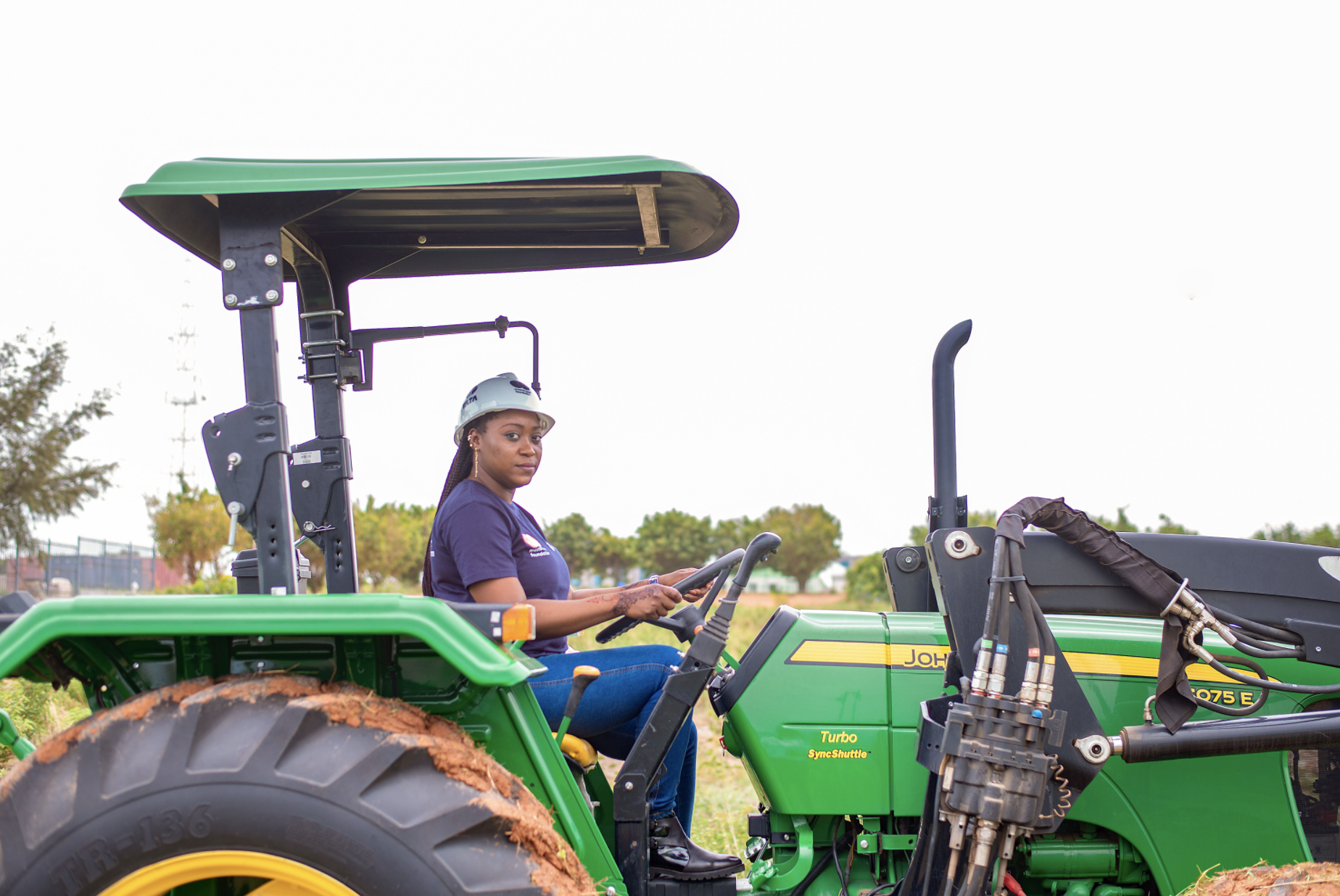Women to take driving seat in Nigeria’s male-dominated farming industry

Lagos, Nigeria, 3rd August 2021 – For the past 13 years, Linda Sheknami Auta has grown rice, maize, yam and soybeans by hand. It is a long and arduous process that has prevented her from expanding her business as quickly as she would like.
Ploughing her 20 hectares farm in Niger State in Nigeria’s Middle Belt takes the equivalent of five months of hard toiling. With the right specialist equipment and training, this could be cut to just 10 days. But finding the financing, tools and farm workers is tough – especially as a woman.
“Women in my industry are often looked down upon, considered too weak to be doing what is traditionally considered a ‘man’s job,’ so it has been hard to hire labour,” says Linda, 34. “Unfortunately, some men just do not want to work for a female boss.”
A new initiative by farming collective Alluvial Agriculture seeks to level the field for female farmers. The company, which provides education and market access for smallholder producers across Africa, has begun training and financially supporting 50 women across 15 Nigerian states to become tractor owner-operators.
“For too long, women have been excluded from agricultural finance and mechanisation, despite the fact that they are the backbone of our industry,” said Dimieari Von Kemedi, co-founder and managing director of Alluvial Agriculture. “Our program is an important step in addressing this imbalance.”
Training is being provided by a joint venture between the Indian conglomerate, Tata International, and Alluvial. After the three-week course is completed, each of the women will form partnerships or cooperatives, and each cooperative will be provided with state-of-the-art John Deere tractors and will work on at least 5,000 hectares of female-led farms that are part of Alluvial’s community block farm projects. A percentage of fees earned by the women will be used to repay the loan for their tractor. Based on expected earnings from tractor leasing, the women should have paid for their first tractor within two or three years. Each of the new female-led businesses is expected to own between 20 and 50 tractors by 2028.
“The Mastercard Foundation is very excited about this partnership as it is an opportunity to drive inclusive growth for women in farming,” said Chidinma Lawanson, Nigeria Country Head at Mastercard Foundation. “Training young women to take up space in the male dominated sector is innovative and promotes gender equality. We look forward to many more women gaining such jobs in agriculture a major sector of the Nigerian economy.”
Female farmers across Africa struggle to cultivate their own businesses, cut off from formal financial support and agricultural training – symptoms of continued gender inequality that permeates through African society, says Chijioke Okoli, Nigeria Director for agriculture and construction equipment at Tata Africa Services.
“Expert training and education in tractor operations will significantly support women in agriculture for the long term,” Okoli said. “We are honoured to be working with Alluvial Agriculture and the Mastercard Foundation to advance women’s economic empowerment.”
Linda is one of the first women to be approved for the new scheme. Once she has received her training, she plans to pass on her knowledge to other women.
“I never imagined that I would learn to drive a tractor, but I am not one to turn down a challenge – I have a passion for trying things that society believes aren’t for women,” says Linda. “Women in agriculture must be empowered. Only then can we achieve gender equity in farming, afford a better life for our families, and help grow the economy.”

